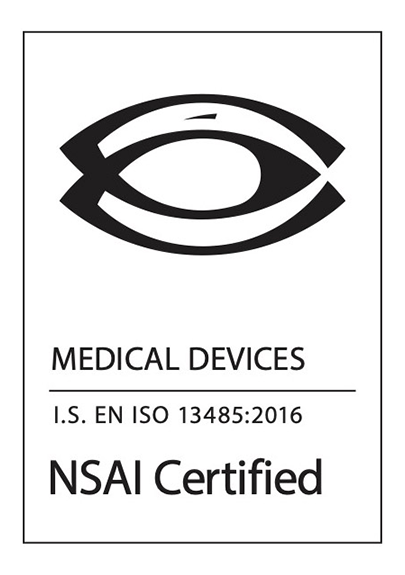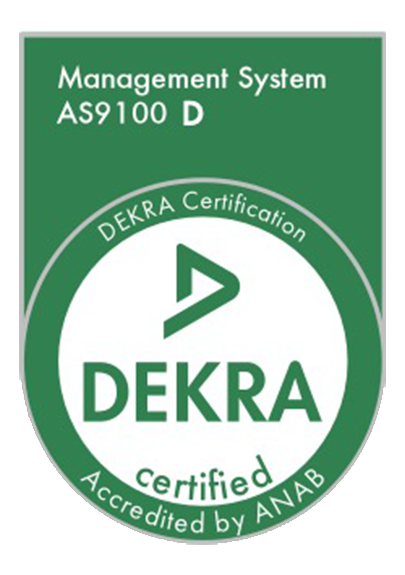News
Pulse Technologies Announces Successful Biocompatibility Studies For Its Novel, Low-cost, Sustainable And High-performing HSR™ Titanium Electrodes
Test results provide medical device companies a significant advantage as they can now lower costs by utilizing high performing titanium-based electrodes with novel HSR™ surface treatment

Pulse Technologies Inc., a US-based contract manufacturer with 25+ years of medical device manufacturing experience is pleased to announce successful biocompatibility test results for their novel Hierarchical Surface Restructuring (HSR™ ) technology on titanium-based electrodes. HSR™ is a ground-breaking surface treatment technology developed by Pulse Technologies Inc. to enhance the electrochemical performance of neural interfacing electrodes.
HSR™ benefits include:
- Improved electrode longevity – no cracking or delamination.
- Tuning capability for desired electrochemical performance.
- Truly engineered surface topography.
- Unprecedented improvement in charge storage capacity and capacitance.
- Substantial reduction in impedance
The biocompatibility of HSR™ on titanium electrodes was evaluated by performing comprehensive cytotoxicity, sensitization and irritation testing. The laboratory where results were conducted is accredited in accordance with the recognized International standard ISO/IEC 17025:2017
“The successful biocompatibility test results of our patented HSR™ technology on titanium electrodes represents a significant breakthrough for medical device companies. Device companies now have the potential to eliminate the need for Pt/10Ir and other platinum group metal (PGM) based electrodes and also eliminates the need for thin films and coatings in almost all neural interfacing and cardiac rhythm management applications. This helps medical device companies reduce manufacturing costs while providing exceptional performance. Substitution of PGMs with other materials such as titanium as electrode materials is the only viable solution to reduce the use of these precious metals in long-term implantable neural interfacing applications to ensure sustainability and security of PGM supply chain for the future of our planet. This is unequivocally critical since PGM thrifting and substitution has been rapidly growing in various other industries due to tightening legislations in Europe and North America, and high PGM prices.”
– Shahram Amini, Director, R&D, Pulse Technologies
HSR™ on titanium electrodes: A game changer to reduce manufacturing costs while providing exceptional performance
Earlier in the year, HSR™ had passed all biocompatibility testing for PGM based electrodes. For several decades, electrodes in cardiac rhythm management devices and almost all neural interfacing applications have been manufactured from platinum-iridium (Pt/Ir) alloys. These are subsequently coated with electrochemically active thin films and coatings for enhanced electrochemical performance. Now, the most recent biocompatibility test results of HSR™ on titanium-based electrodes is a significant breakthrough for the medical device industry since HSR™ technology can enable the medical device industry to utilize high-performing and low-cost titanium-based electrodes with exceptional performance.
With this breakthrough, medical device manufacturers have the potential to manufacture devices:
- Without the need for these highly costly PGM based electrodes.
- Nor the need for any thin film or coating.
Benefits of HSR™ with titanium electrodes
Using titanium electrodes with HSR™ surface treatment can provide several advantages to medical device manufacturers such as:
- Lower costs versus traditionally used PGM based electrodes
- Higher electrochemical performance and surface tunability
- No coating overspray and elimination of adhesion failures
HSR™ on titanium electrodes can potentially result in up to 500-fold increase in charge storage capacity and up to 3 orders of magnitude increase in specific capacitance.
The use of HSR™ with titanium electrodes thus provides medical device companies the potential to reduce device manufacturing costs while improving performance. This is a significant advantage as we move to a value-based healthcare system with lower reimbursements.
Biocompatibility Studies Conducted
The testing was conducted as per FDA and ISO standards conducted by a certified, independent testing laboratory in the US. This laboratory is accredited in accordance with the recognized International Standard ISO/IEC 17025:2017.
The below biocompatibility studies were conducted on the titanium electrodes with HSR™ treatment:
- Elution Cytotoxicity Test: Cytotoxicity is an in vitro test to determine whether HSR™ on titanium electrodes can damage cells. This allows for a qualitative assessment of Cytotoxicity. As patient safety is of utmost importance for medical devices, this test is an important indicator if the use of HSR™ on titanium is harmful for the patient.
- Intracutaneous (Intradermal) Reactivity Test: This test is used to determine the potential to cause irritation when HSR™ is used on titanium electrodes.
- Skin Sensitization Test/ Guinea Pig Maximization Test: This test determines the potential of the material used to elicit contact dermal allergenicity. The test evaluated the potential to cause an allergic response following repeated exposure when HSR™ is used on titanium electrodes.
The use of HSR™ on titanium electrodes met all the biocompatibility requirements as outlined by the above tests.

At Pulse Technologies, we offer:
- 25+ years of medical device manufacturing experience.
- Industry-leading in-house metrology and testing capabilities
- 70,000 sq. ft facility.
- 100+ CNC machine tools.
- Data conveniently formatted for DHFs/DHRs, and much more.
Want to learn more? Get in touch: sales@pulsetechnologies.com.
Contract Manufacturing
Advanced Technology
Capabilities
© 2021 Pulse Technologies, Inc. All rights reserved.
 Careers
Careers Contact
Contact







